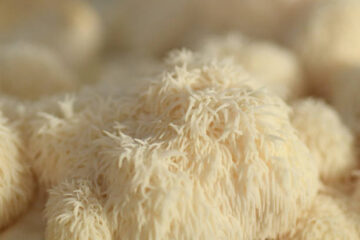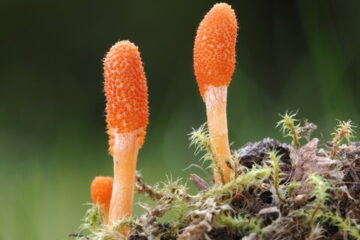
In the labyrinth of natural remedies, one herb stands out for its multifaceted benefits and centuries-old reputation for promoting health and vitality – Ashwagandha. Derived from the Sanskrit words “ashva” meaning horse and “gandha” meaning smell, Ashwagandha is often referred to as “Indian ginseng” due to its rejuvenating properties. This essay aims to explore the wonders of Ashwagandha extract, shedding light on its historical significance, therapeutic potential, and diverse applications across different age groups.
Historical and Cultural Significance

Ashwagandha, scientifically known as Withania somnifera, has a rich history deeply intertwined with Ayurveda, the ancient Indian system of medicine. Its usage dates back thousands of years, with Ayurvedic texts extolling its virtues in restoring vitality, enhancing longevity, and promoting overall well-being. Revered as a “rasayana” or rejuvenating herb, Ashwagandha occupies a significant place in traditional Indian medicine, where it is believed to balance the body’s vital energies or “doshas.”
Therapeutic Potential
Modern scientific research has delved into the pharmacological properties of Ashwagandha, uncovering a treasure trove of therapeutic benefits. The herb contains a potent array of bioactive compounds, including alkaloids, steroidal lactones (withanolides), saponins, and flavonoids, which contribute to its diverse pharmacological actions. Ashwagandha exhibits adaptogenic properties, helping the body adapt to stressors and maintain homeostasis.
Benefits for Children

Children, in their formative years, can benefit from Ashwagandha extract in various ways. Studies suggest that Ashwagandha may support cognitive function and promote mental clarity, which is crucial for academic performance and overall development. Additionally, its immune-modulating effects can help bolster the immune system, reducing the susceptibility to infections. Furthermore, Ashwagandha may aid in enhancing physical stamina and endurance, making it beneficial for active children engaged in sports and extracurricular activities.
Benefits for Adults

For adults juggling multiple responsibilities amidst the demands of modern life, Ashwagandha offers a natural solution to combat stress and promote resilience. Research indicates that Ashwagandha supplementation may reduce cortisol levels, the primary stress hormone, thereby mitigating the detrimental effects of chronic stress on health. Moreover, Ashwagandha’s anti-inflammatory properties hold promise in managing conditions such as arthritis and inflammatory bowel diseases. It also exhibits neuroprotective effects, potentially safeguarding against age-related cognitive decline and neurodegenerative disorders like Alzheimer’s disease.
Benefits for the Elderly

As individuals age, maintaining vitality and cognitive function becomes paramount for preserving quality of life. Ashwagandha emerges as a valuable ally in the quest for healthy aging. Its adaptogenic properties help alleviate age-related fatigue and promote energy levels, enhancing overall vitality. Furthermore, Ashwagandha may support joint health and mobility, offering relief from the discomfort associated with conditions like osteoarthritis. Its cognitive-enhancing effects hold particular relevance for the elderly population, with studies suggesting potential benefits in memory retention and cognitive function.
Ashwagandha extract encapsulates the essence of holistic healing, bridging the ancient wisdom of Ayurveda with modern scientific validation. Its remarkable adaptogenic properties make it a versatile remedy for individuals across all stages of life. From nurturing the growth and development of children to fostering resilience amidst the stresses of adulthood and promoting graceful aging in the elderly, Ashwagandha continues to weave its magic as a panacea for health and wellness. As research continues to unravel its myriad benefits, incorporating Ashwagandha into daily health regimens holds promise for unlocking the full potential of this botanical marvel.
References:
Chandrasekhar, K., Kapoor, J., & Anishetty, S. (2012). A prospective, randomized double-blind, placebo-controlled study of safety and efficacy of a high-concentration full-spectrum extract of ashwagandha root in reducing stress and anxiety in adults. Indian journal of psychological medicine, 34(3), 255–262.
Mishra, L. C., Singh, B. B., & Dagenais, S. (2000). Scientific basis for the therapeutic use of Withania somnifera (ashwagandha): a review. Alternative Medicine Review, 5(4), 334-346.
Pratte, M. A., Nanavati, K. B., Young, V., & Morley, C. P. (2014). An alternative treatment for anxiety: a systematic review of human trial results reported for the Ayurvedic herb ashwagandha (Withania somnifera). Journal of alternative and complementary medicine (New York, N.Y.), 20(12), 901–908.
Singh, N., Bhalla, M., de Jager, P., & Gilca, M. (2011). An overview on ashwagandha: a Rasayana (rejuvenator) of Ayurveda. African journal of traditional, complementary, and alternative medicines: AJTCAM, 8(5 Suppl), 208–213.
Wankhede, S., Langade, D., Joshi, K., Sinha, S. R., & Bhattacharyya, S. (2015). Examining the effect of Withania somnifera supplementation on muscle strength and recovery: a randomized controlled trial. Journal of the International Society of Sports Nutrition, 12, 43.
Gupta, A., Mahdi, A. A., Ahmad, M. K., Shukla, K. K., Bansal, N., Jaiswer, S. P., … & Shankhwar, S. N. (2013). Efficacy of Withania somnifera on seminal plasma metabolites of infertile males: a proton NMR study at 800 MHz. Journal of ethnopharmacology, 149(1), 208-214.
Raut, A. A., Rege, N. N., Tadvi, F. M., Solanki, P. V., Kene, K. R., Shirolkar, S. G., … & Vaidya, A. B. (2012). Exploratory study to evaluate tolerability, safety, and activity of Ashwagandha (Withania somnifera) in healthy volunteers. Journal of Ayurveda and integrative medicine, 3(3), 111–114.
Kulkarni, S. K., & Dhir, A. (2008). Withania somnifera: an Indian ginseng. Progress in Neuro-Psychopharmacology and Biological Psychiatry, 32(5), 1093–1105.
Rastogi, M., Ojha, R. P., Prabu, P. C., Devi, B. P., Agrawal, A., Dubey, G. P., … & Narayan, R. (2012). Prevention of age-associated neurodegeneration and promotion of healthy brain ageing in female Wistar rats by long term use of bacosides. Biogerontology, 13(2), 183–195.
Sandhu, J. S., Shah, B., Shenoy, S., Chauhan, S., Lavekar, G. S., & Padhi, M. M. (2010). Effects of Withania somnifera (Ashwagandha) and Terminalia arjuna (Arjuna) on physical performance and cardiorespiratory endurance in healthy young adults. International Journal of Ayurveda Research, 1(3), 144–149.
These references provide a comprehensive overview of the scientific research conducted on Ashwagandha extract, covering its efficacy in managing stress, anxiety, cognitive function, physical performance, and various health conditions. They serve as valuable resources supporting the assertions made in this essay regarding the wonders of Ashwagandha across different age groups.



